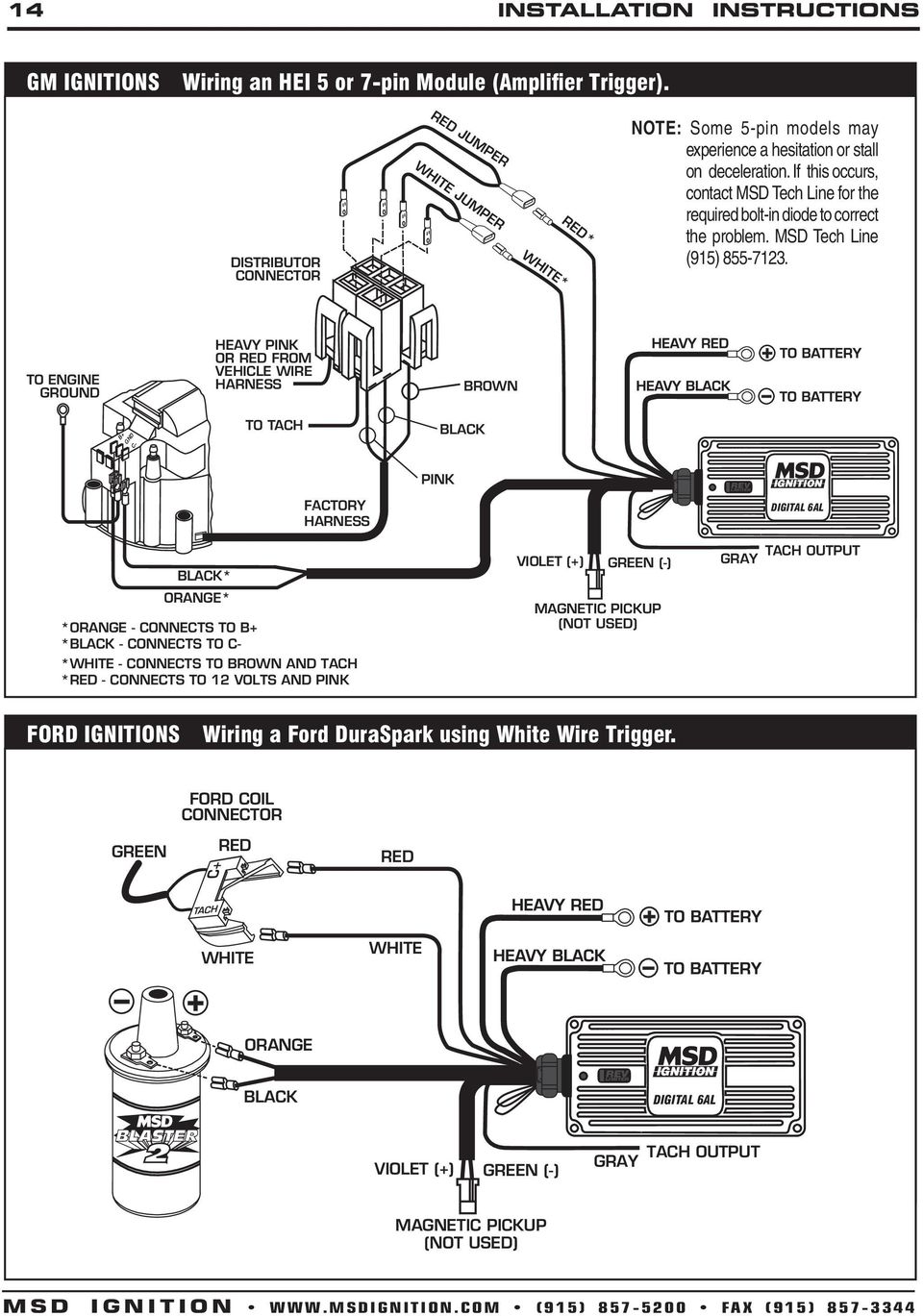When it comes to understanding the electrical system of your vehicle, having a clear and accurate wiring diagram is crucial. The MSD Hei Distributor Wiring Diagram is a valuable tool that provides a visual representation of the wiring configuration for the distributor. By referring to this diagram, you can easily identify the connections between the various components of the distributor, ensuring that everything is wired correctly.
Why are MSD Hei Distributor Wiring Diagrams essential?
MSD Hei Distributor Wiring Diagrams are essential for several reasons:
- They help in understanding the wiring configuration of the distributor.
- They ensure that all connections are made correctly to prevent electrical issues.
- They serve as a reference guide when troubleshooting any electrical problems.
How to read and interpret MSD Hei Distributor Wiring Diagrams effectively
Reading and interpreting MSD Hei Distributor Wiring Diagrams can be made easier by following these steps:
- Start by identifying the key components of the wiring diagram, such as the distributor, ignition module, and ignition coil.
- Trace the wiring connections from each component to ensure they are correctly connected.
- Refer to the color-coding of the wires to match them with the corresponding components.
Using MSD Hei Distributor Wiring Diagrams for troubleshooting electrical problems
MSD Hei Distributor Wiring Diagrams can be a valuable tool when troubleshooting electrical problems in your vehicle:
- Identify any loose or disconnected wires that may be causing the issue.
- Check for any damaged wires or components that need to be replaced.
- Compare the wiring diagram with the actual wiring configuration to pinpoint any discrepancies.
Importance of safety when working with electrical systems
Working with electrical systems, including using wiring diagrams, requires strict adherence to safety precautions. Here are some safety tips to keep in mind:
- Always disconnect the battery before working on any electrical components to prevent the risk of electric shock.
- Avoid working on wet or damp surfaces to reduce the risk of electrical hazards.
- Use insulated tools when handling electrical components to prevent accidental contact with live wires.
Msd Hei Distributor Wiring Diagram
Msd Hei Distributor Wiring Diagram – Ecoled

msd 6al hei wiring diagram gm

Msd Ready To Run Distributor Wiring

[30+] Ford Hei Distributor Wiring Diagram, Msd 8728 Wiring Diagram
![Msd Hei Distributor Wiring Diagram [30+] Ford Hei Distributor Wiring Diagram, Msd 8728 Wiring Diagram](https://i1.wp.com/annawiringdiagram.com/wp-content/uploads/2019/02/hei-distributor-wiring-wiring-diagram-hei-distributor-wiring-diagram.jpg)
Msd Distributor Wiring Diagram – Easy Wiring

Msd Hei Distributor Wiring Diagram
